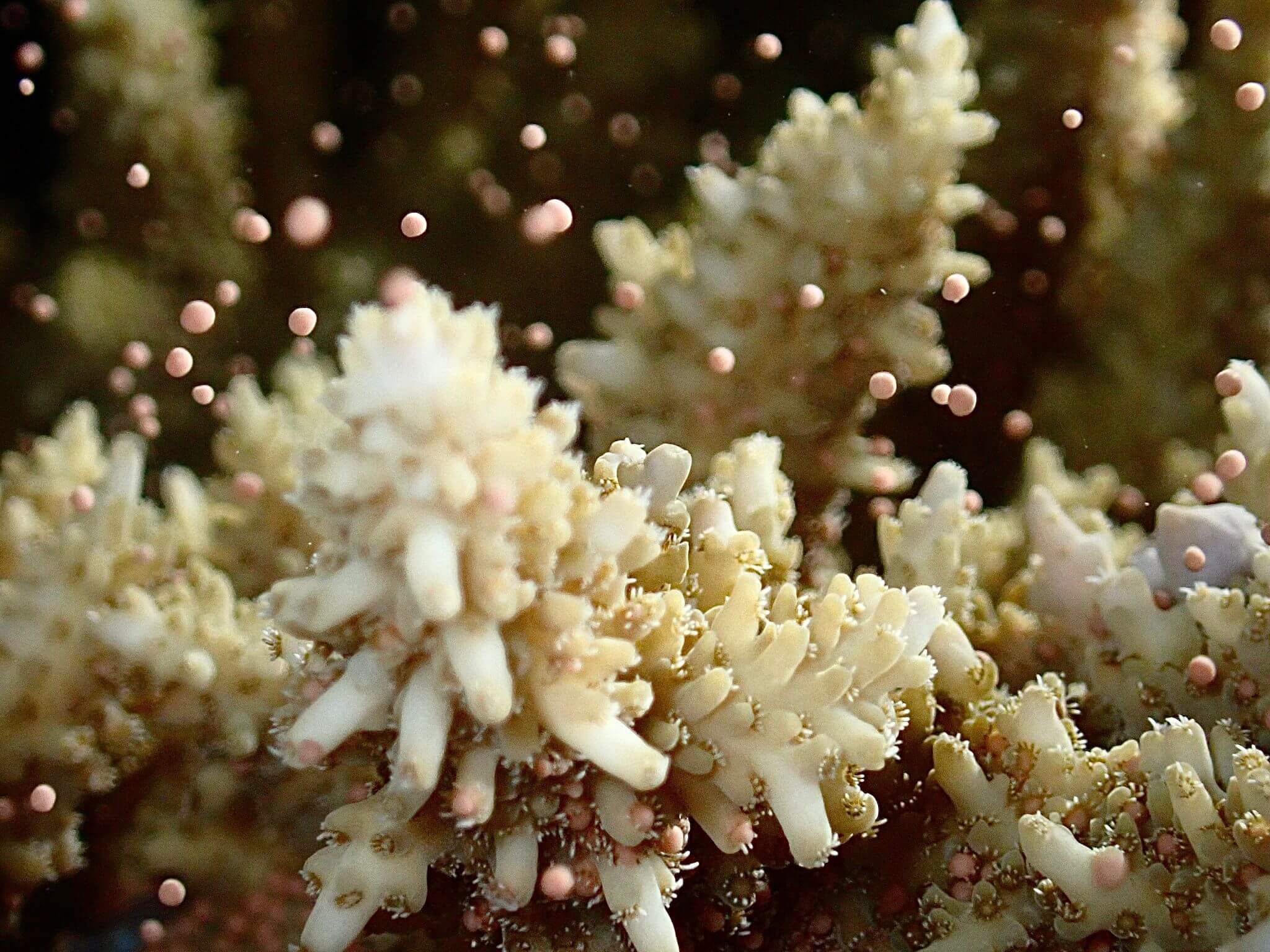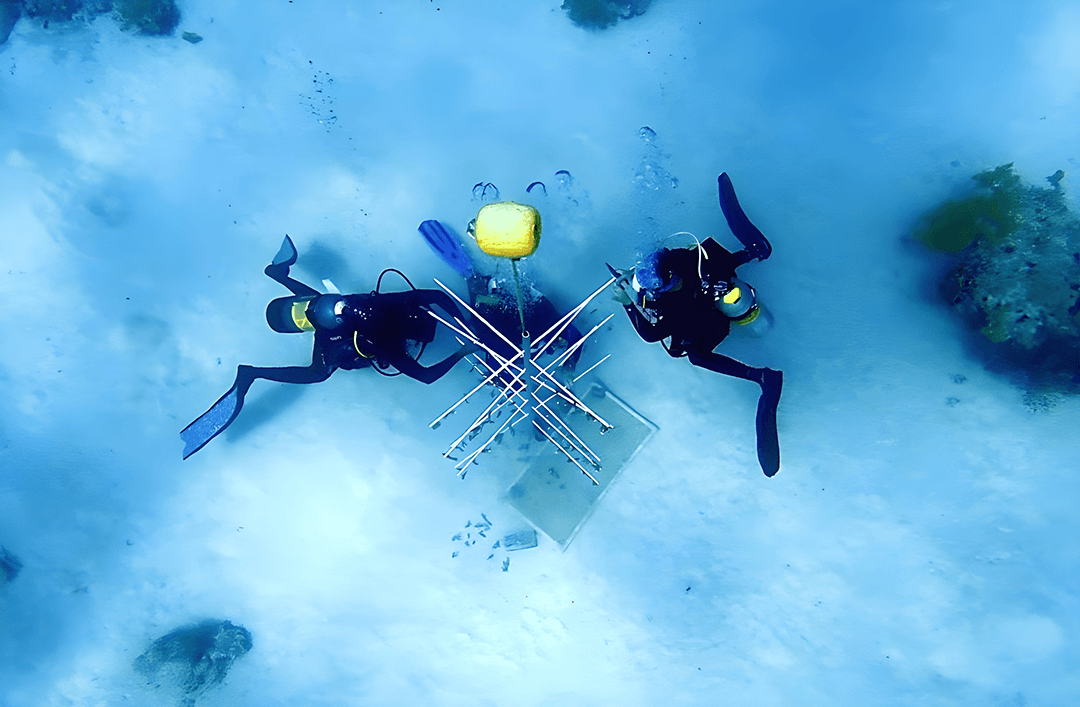KAUST Reefscape Restoration Initiative observes coral spawning at NEOM’s Shushah Island

Corals spawning at Shusha
Coral reefs are critical to the health of the world's oceans, and, economically, millions of people depend on them for their livelihoods. Yet corals around the world are being dramatically impacted by warming ocean temperatures and related environmental stressors. As a result, collaborative strategies are needed to boost resiliency and prevent decline.
In response, the KAUST Reefscape Restoration Initiative (KRRI) is embarking on a pioneering effort to conserve, enhance and restore 100 hectares of coral reefscape in the Red Sea. Utilizing state-of-the-art ocean-based and land-based nursery facilities and innovative technologies for site mapping, coral production, out-planting and monitoring, the initiative intends to deliver the world's largest coral reef restoration, enhancement and conservation endeavor.
Following months of detailed planning and baseline assessments, In March 2023, KRRI launched its on-the-reef restoration work at Shushah, an island off the coast of NEOM, to test and evaluate various coral propagation techniques. In that first month, KRRI propagated nearly 5,000 corals from a dozen important species, fulfilling nearly half of its 2023 annual target. To maximize productivity, the initiative examined seven distinct coral propagation techniques and five different coral nursery designs. At its peak, the initiative anticipates producing half a million corals per year to rebuild and sustain diverse reef habitats.
May 5 marked another milestone for the project, when the KRRI team recorded the first-ever mass synchronized coral spawning in the region, including a dozen different species. Numerous corals spawning just once a year, but when was previously unknown. The new data will inform the project's efforts to effectively harvest and cultivate the vast amount of coral material produced during spawning events to increase the scale of reef restoration. The major focus of the land-based nursery is to improve the survival of juvenile corals taken during spawning, as well as massively produce coral micro-fragments, which result in rapid coral tissue growth.
KRRI Project Director Tom Moore said, “The deployment of ocean-based nurseries, the harvesting of corals and the propagation of corals during the trial phase, along with determination of the timeframe of coral spawning activity in the northern Red Sea, demonstrates the capability and commitment for the full-scale implementation of the project at Shushah and beyond.”

Divers propagating coral onto one of several designs being tested to scale up reef restoration
KRRI aligns with the Kingdom's ambitious plan to transform its economy and society by promoting sustainable development and preserving natural resources. By restoring these vital ecosystems, KRRI is helping to protect marine biodiversity and promote sustainable economic growth. It also demonstrates the commitment of Saudi Arabia to the United Nations' Sustainable Development Goals, particularly SDG 14, which emphasizes the importance of protecting and sustainably using oceans, seas and marine resources.
The initiative is a multi-disciplinary effort that involves scientists, engineers, and local communities. It is also leveraging the latest advances in science, technology and innovation to develop effective restoration strategies that can be scaled up and replicated elsewhere. By serving as a model for other nations and organizations, KRRI Head of Strategy and Operations Jerry Thomas said that KRRI represents a pioneering and innovative approach to coral restoration and conservation, providing a model for the rest of the world to follow.
“The dedication, passion and commitment of the team involved is the key driver that will help us achieve the ambitious goal of restoring 100 Hectares of reefscape adjacent to Shushah and potentially beyond.”

